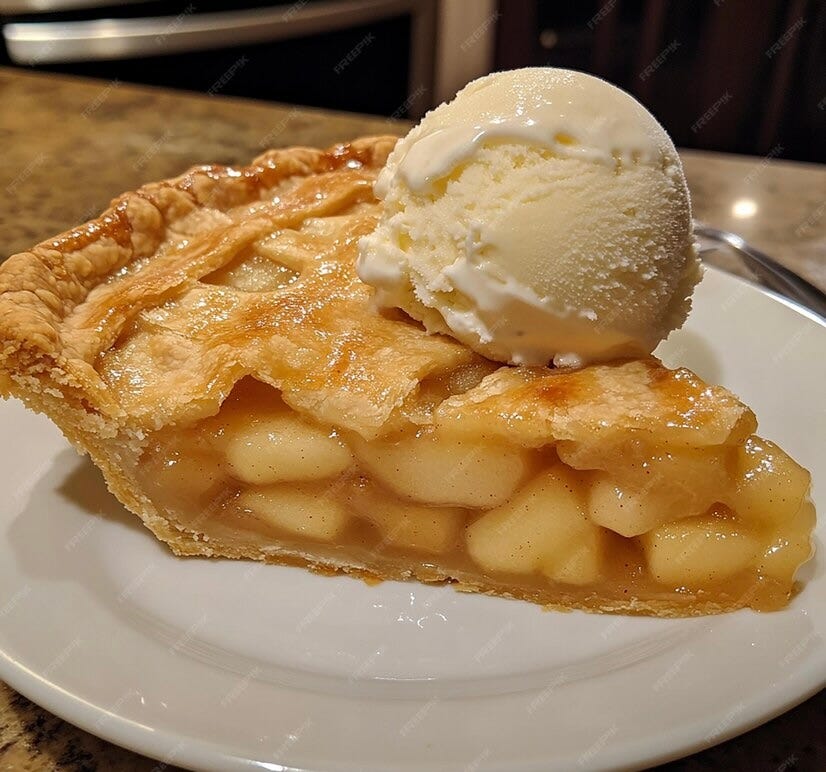For a better view in your browser, click here.
I began writing this story when I was feeling miserable. I know doctors aren’t immune from illness, and honestly didn’t need to be reminded. Yet just to make sure I wasn’t feeling smug, the fates recently prescribed for me a rather painful illness. I’ve gratefully recovered. However, while feeling droopy, I decided to distract myself from my misery by writing something fun and whimsical. Something different from Time to Turn My Body In, my last month’s Substack.
It worked. Writing this put a smile on my face. And maybe even speeded my recovery. I hope you enjoy it.
Who is the superlatively creepiest creep you can think of? But the title of this piece, Superlative Creep, isn’t about a person, the creepiest creep: some repulsive, revolting who. It refers to a what.
It’s the creep in our use of superlatives. And it’s an epidemic.
I recently sent a donation to my local hospital, and I thought it was very nice of them to send me a thank-you letter. But did they have to write that my non-million-dollar gift would have “an incredible impact?”
Of course every little bit helps. Yet I’ve a hunch that the impact of my modest donation is a bit less than unbelievable. I’d be happy if in some minor way it’s just “credible.”
Those whose job it is to thank donors aren’t alone. L’Oréal, for example, advertises the “incredible” feel of its lip gloss. Yes, not credible. Even better, its hair goop makes your hair “divine.”
Not to be outdone, in just 30 days InStyle makes your skin “amazing.”
Amazing? Well, skin creams are pleasant. Yet somehow they don’t quite knock me over. “Amazing” literally means to put into a maze; it expresses (or used to express) surprise that’s combined with true bewilderment. Maybe “amazing” should be reserved for real magicians.
I called the gas company to make an appointment for a service call. The young man at the other end of the line was friendly and efficient.
“May I have your telephone number, please?”
I gave it to him.
“Awesome,” he replied.
“And now your account number, please.”
I read off the ten digits.
“Awesome,” he pronounced.
Now, awe is a feeling of reverential respect, mixed with fear, or wonder. Walking on the surface of the moon is awesome. So is a total solar eclipse. The view from the brink of Niagara Falls is awesome. But my account number? Really?
Hospitals that advertise themselves as “world's best” or “most advanced” make me suspicious. As do “miracle” cures and “wonder” drugs. I don’t trust people who say they “slept like a baby,” either. Babies wake up every couple of hours.
Superlatives capture our attention—we are drawn to emotionally charged words that highlight deviations from the norm. Naturally, the overused exaggerations quickly lose their meanings. Today we say “fantastic” so casually that we’ve entirely forgotten what it means. The word derives from “fantasy”, meaning something so extraordinary, so otherworldly, that it belongs in the realm of fantasy. Sadly, the word has lost that lovely, poetic hint of the supernatural.
Today anything and everything can be fantastic—makeup remover, dish detergent.
The sky is falling!
Our over-the-top words soon become clichés, ignorable. Do you remember the childhood story, Chicken Little? The heroine, Henny Penny, was walking in the woods when she was struck by an acorn falling from a tree. “The sky is falling!” she called out, and kept calling out. Her cries of alarm are a metaphor for unbelievable messages, whether negative or positive. Let’s be honest, very few things are truly amazing, incredible, unbelievable, awesome, or historic.
If you’re living outside of North America, you may not know that currently, here, the highest praise for something is to call it “sick.” Or “insane.”
Adjectives like “good” and “satisfactory” are an endangered species. They’re just too extraordinarily ordinary.
And then there’s the overuse of exclamation points! Look!! They are everywhere!!!!
Maybe I’m being too snobbish. After all, those of us in an older generation are attached to the superlatives of our own times. We like to call things “marvelous.” Are they truly marvels? A marvel means (well, it used to mean) something that actually transcends the natural order.
We rave, too, when things are “fabulous.” Originally the word meant celebrated in fable, or myth. In short, imaginary. But are the things we call fabulous so mythical, so legendary, that they are fable-like? Imaginary, out of the material world we know?
Out of This World
And come to think of it, what about “out of this world”? We like to throw that one around, too. Does that fabulous, out-of-this world apple pie with ice cream truly belong on a different planet? If so, why stop on a planet just next door? Maybe it belongs on a different galaxy altogether?
Hmm… come to think of it, I had better backtrack here. Before it’s too late. Freshly baked, warm apple pie is truly incredible. And topped with ice cream? Out of this world. Unbelievable. Awesome.
Amazing—trust me.
Superlative creep abounds. I hope your own favourite dishes are like mine—absolutely the best. Maybe even so awesome that they’re “to die for.”
So I’m changing my mind. Our superlatives are insane. Fantastic. Amazing. Fabulous!
Unbelievable.
To see other posts on Musings on Medicine and More, click here.






Hi Peter,
"Superlative Creep" is your! best!! ever!!!
It's truly unbelievable that you can write such awesome prose. Many of your loyal followers now suspect that "Peter's Substack" is the nom de plume of some rogue AI creation, intent on making the world laugh and weep.
Hi Peter,
You write brilliantly! And I used an exclamation mark intentionally to
emphasize how awesome you are. A really fun piece.